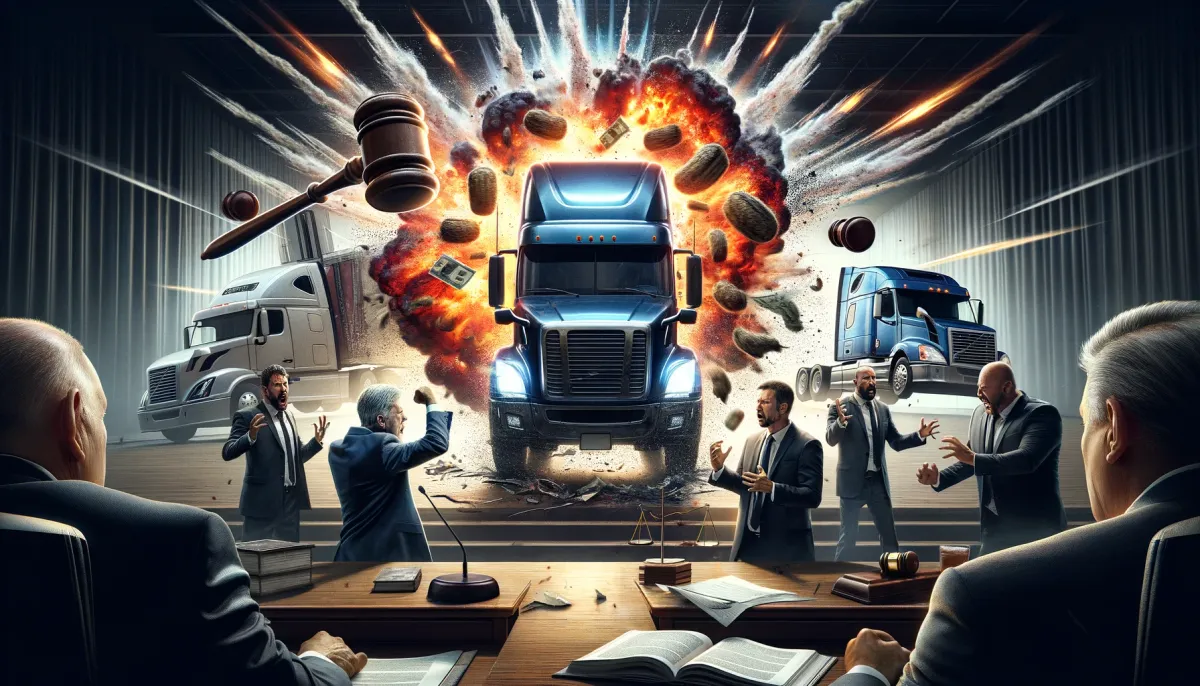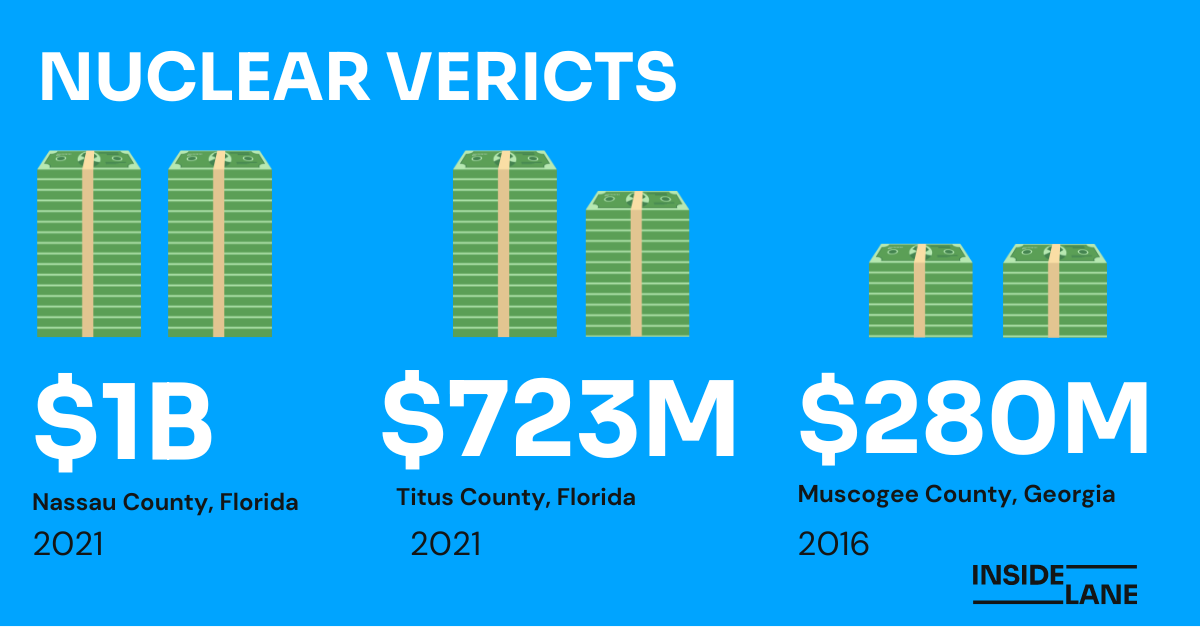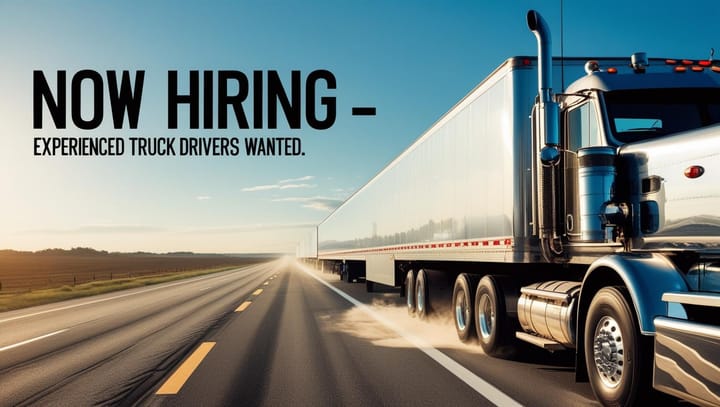Trucking Industry Fights Back Against Rising Nuclear Verdicts
Lawsuits against trucking companies soar, with multi-million-dollar awards becoming commonplace.

By Alan Schmadtke, for The Inside Lane
Over the past decade, lawsuits stemming from truck-related accidents have multiplied across America, and juries increasingly have delivered multi-million-dollar awards.
More recently, awards have grown into such eye-popping numbers — think verdicts of compensatory and punitive damages totaling $1 billion in Florida and $723 million in Texas, both in 2021 — that trucking leaders have a scary name for them: nuclear verdicts.
It’s gotten to where industry leaders believe that personal injury attorneys and mass tort law firms now look at the industry as a piggy bank — for both clients and for themselves.
“They’re not even looking to go to court. They’re looking for that quick settlement from the insurance company,” Florida Trucking Association president and CEO Alix Miller told The Inside Lane.
In some cases, the plaintiff’s attorneys prefer a trial. That’s especially true if they believe they have a strong case against a well-heeled trucking company.
“We’re starting to see nuclear verdicts that are way disproportionate” to damages and injuries incurred from an accident, said David Bauer, vice president of state and tax policy for the American Trucking Association.
Trucking lawsuit payouts skyrocket
From 2010 to 2018, the average verdict for truck-related accidents rose from $2.3 million to $22.3 million, according to a survey from the American Transportation Research Institute (ATRI). In its 2020 report, the group noted a spike in cases filed over that nine-year span and a jump in awards of $1 million or more.
Trucking companies lose cases for various reasons, including situations in which drivers have been found guilty of texting, driving under the influence, fleeing an accident or are simply not qualified to drive, according to ATRI.
Settlements and verdicts directly affect individual companies and drivers. Soon, though, they affect all truckers through increased insurance rates.
The American Transportation Research Institute reported that insurance rates for commercial trucks grew 42% from 2010 to 2018.
“There comes a time where you can’t get insurance or you can’t afford it,” Miller said. “At some point, you’re going to go bankrupt.”
Trucking industry fights back against nuclear verdicts
Fleet owners and auto insurers have watched two decades of increasing financial awards come out of courtrooms to plaintiffs who sued following truck-involved accidents.
“It’s always been there [as an issue to fight],” Bauer said.
It wasn’t until 2019 that the industry drew a line in the sand and decided to fight back in an organized way.
Because mass tort laws vary from state to state, trucking organizations fight on 50 front lines — a strategy for every jurisdiction. They’d like to start with a more equal playing field. The ATA has rounded up state-level trucking groups to lobby legislators for new bills while monitoring the national landscape.
Take seat belts, for example.
“In 26 states right now, you cannot, as a defendant, tell a jury that the plaintiff was not wearing their seat belt at the time of the accident,” Bauer said. “That [by not] wearing their seat belt, their own negligence may have exacerbated their injuries.”
Lawmakers in West Virginia tossed out that restriction, he said. So did Louisiana and Indiana.
This is how the trucking industry plows through tort reform, state by state.
In other words, slowly.

State-by-state changes coming
To their relief, truckers have found success recently. In Florida, Gov. Ron DeSantis in 2023 signed into law tort reforms that affect how medical bills can be presented at trial. Courts now may only admit as evidence the amount of money paid for a medical bill, not how much an insurance company or medical provider billed a patient.
Additionally, the new law reduced the state’s statute of limitations for filing a legal claim from four years to two. It also redefined the state’s negligence model and requires disclosure of any relationship between attorneys and treating physicians.
Other wins across the country:
- Montana revised its civil liability laws in 2021, shutting down chances for plaintiffs to win “phantom damages” — damages that are calculated from what a medical insurance company billed out vs. what they paid.
- In 2023, Iowa capped non-economic damages at $5 million for most people who win cases after being struck by a car or truck. (Economic damages for lost wages and medical expenses are not capped.)
- In Texas, plaintiffs can’t sue trucking companies for their role in an accident unless the truck driver has already been found liable. This new bifurcated trial law, passed in 2021, is one the trucking industry likes and wants to see take hold in other states.
Hedge funds bet big on trucking lawsuits
More work lies ahead. Much more.
Georgia, Mississippi and California are among states that defendants’ attorneys consider “judicial hellholes” for trucking businesses.
“Depending on what state you’re in when an accident happens can somewhat determine your legal vulnerability,” Miller said. “I know from talking to the insurance companies we talk to, one question they ask [trucking] companies [who inquire about buying insurance] is, ‘How many miles do you run in Florida?’”
One trend the trucking industry wants to make lawmakers across the country aware of is how plaintiff attorneys can afford sustained legal fights. Sometimes, attorneys raise money from hedge funds and private equity groups.
Yep: Wall Street likes to wager on lawsuit outcomes and collect profits from jury verdicts and settlements.
These financiers pump money into legal claims in exchange for a percentage of a verdict or settlement. (These arrangements are usually reserved for lawsuits that can generate verdicts in the tens or hundreds of millions of dollars.)
Andy Young of The Law Firm for Truck Safety did not respond to an interview request from The Inside Lane. Young is chair of the trucking litigation group for American Association for Justice, a national advocacy group for trial lawyers.
ATA backs bipartisan highway accident bill
The American Trucking Association is happy to see the introduction of the Highway Accident Fairness Act of 2023 by U.S. Congressmen Garret Graves (R-LA), Henry Cuellar (D-TX), and Mike Bost (R-IL).
The bipartisan bill is intended to help streamline legal remedies and tackle what it considers unethical tactics that it sees from time to time.
However, Bauer said, “It’s a tall task in the dysfunctional Congressional climate to expect passage. But we want to make these people work [to win cases], and I think for too long, our members felt we were playing defense as an industry. We need to take the fight to the other side, too.”
Have a question or comment about this article? Email Bianca Prieto at editor@theinsidelane.co
Not yet subscribed to The Inside Lane Newsletter? Join here for free.





Comments ()